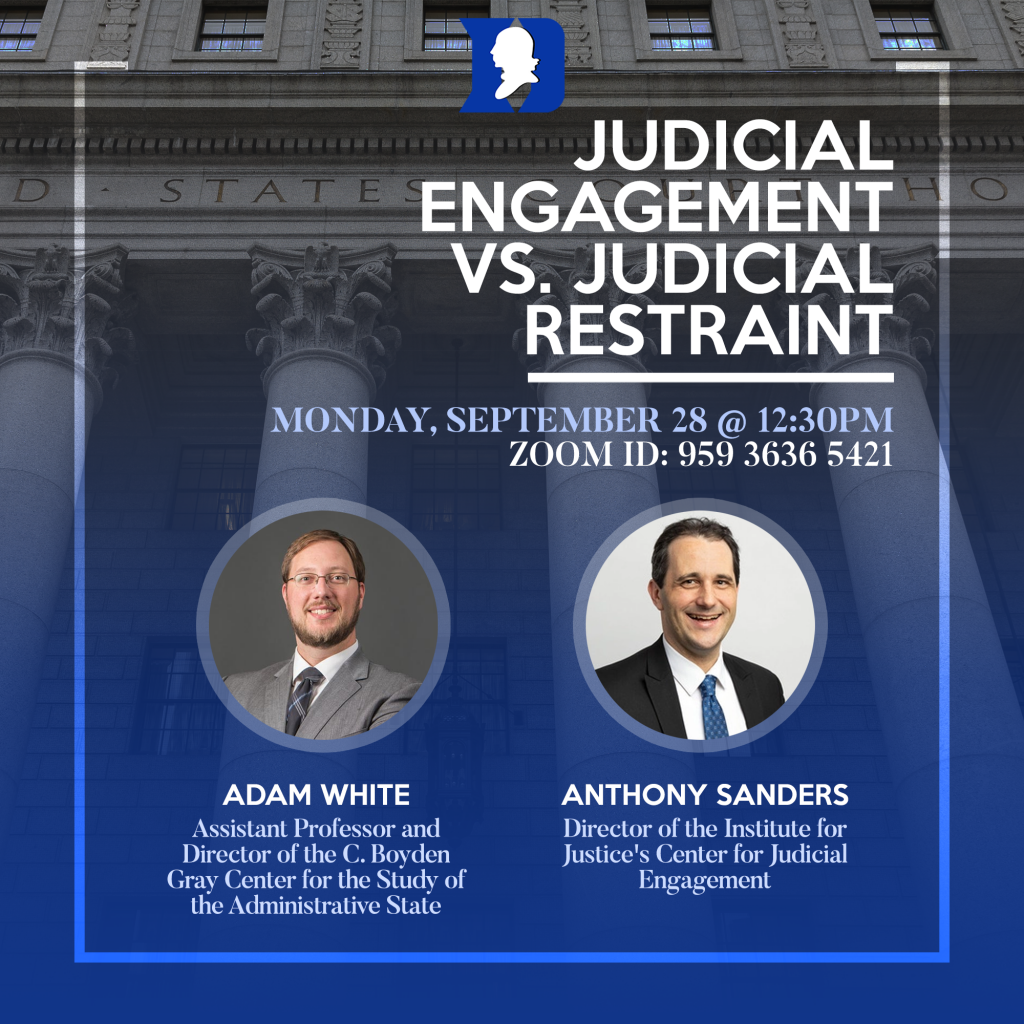
Sometimes the original meaning of the Constitution conflicts with or points in a different direction from the Supreme Court’s precedents. When that happens, what is the role of stare decisis? What should an originalist Court do with non-originalist precedent?
Join us for a discussion on the role of stare decisis for originalist judges with Professor Randy Barnett, moderated by Professor Ernest Young. Professor Barnett is the Patrick Hotung Professor of Constitutional Law, Carmack Waterhouse Professor of Legal Theory at the Georgetown University Law Center, and Director of the Georgetown Center for the Constitution. You can find his most recent writing on the topic here (https://lawliberty.org/forum/stare-decisis-for-originalist-judges/).
Sponsored by the Duke Law Federalist Society. For more information, please contact Meredith Criner at meredith.criner@duke.edu.
Log in using Webinar ID: 957 3810 4543, or this link: https://zoom.us/j/95738104543.











